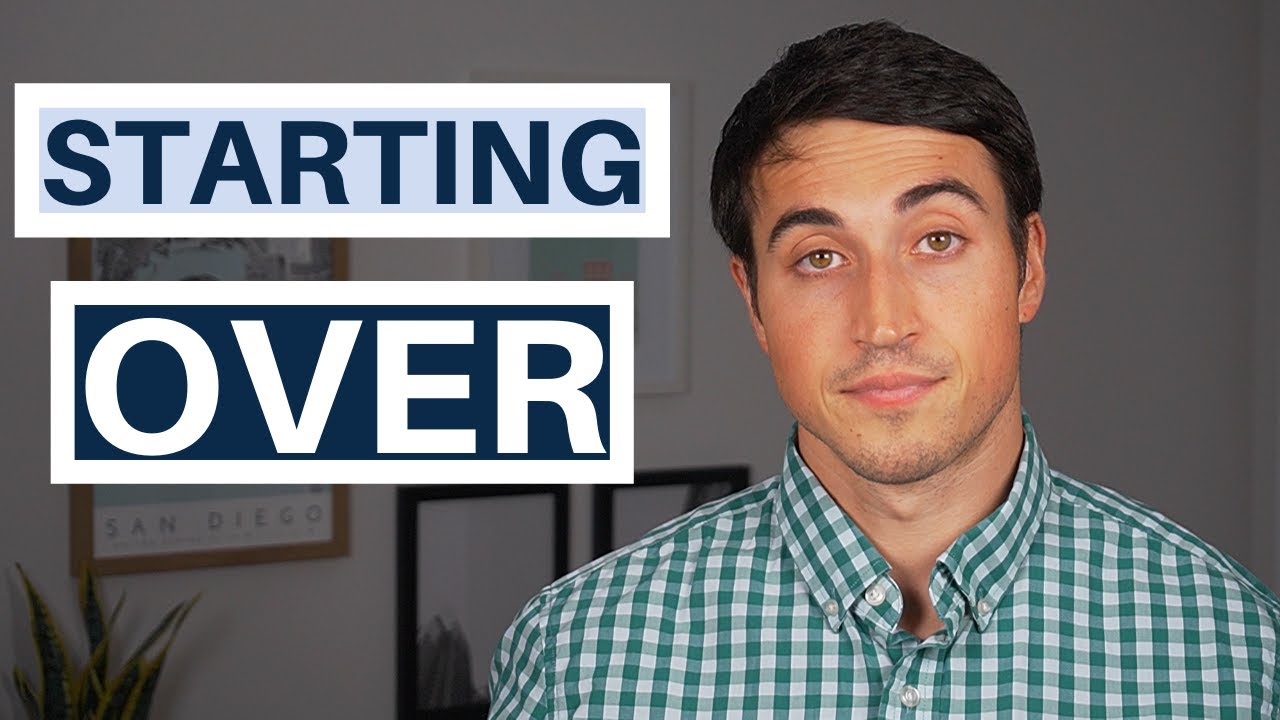
If I Had To Start My Commercial Real Estate Career All Over Again, Here’s What I’d Do

2020 was just a weird year overall, and even weirder if you’re just starting out and trying to make your way in the real estate industry (or any other career path in general).
I graduated from college in 2011, when things were finally starting to recover and look up after a rough few years in the economy, but things might have been different if I had graduated just a few years earlier.
And with such an up-and-down year in the economy, this has gotten me thinking a lot about what I would do if I were starting my commercial real estate career over today, in this environment.
Even just 9 years ago in 2011, the world was a very different place.
LinkedIn was just taking off, proptech wasn’t really a thing yet, and real estate was much less institutionalized than it is today.
And because of this, the path I took at that point probably wouldn’t be the right path for Justin Kivel graduating in the current economy, so what I wanted to do in this article is break down what I would do if I were starting from scratch today. You can watch the video version right here:
So, let’s rewind all the way to the beginning, assuming I have no real estate experience, and want to decide where to start out first.
Start With The End In Mind
Before making any big decisions, the first thing I would do above anything else is to start with the end in mind, and think about where I wanted to end up in my career path overall.
For me, this was always related to something entrepreneurial, or “doing my own thing”.
In a real estate sense, the end goal has always been to have direct ownership in deals, whether that’s owning and operating properties myself, or investing with partners on larger deals.
And with that in mind, for any decision I made going forward, I would make sure to keep this goal at the forefront and try to make decisions that would take me on the most direct and efficient route to making that happen.
For anyone just getting started, I’d highly recommend the same thing.
Do everything you can to get a rough idea of where you want to end up in the future, regardless of where that is, and you’ll make much better decisions when you have those big career decisions to make.
How To Choose The Best University Real Estate Program (For You)
To really start from scratch here, I’m going to rewind all the way back to graduating high school.
This is where the big life changing decisions really start happening, starting with your decision on college.
And if I were 18 years old and just graduating from high school, if I wanted to break into the real estate industry, I would do everything I could to get into the best public university I could, in an area I would want to live and work in long-term, and make sure I’m not going into significant debt to do it.

Unlike some other areas of high finance, most real estate related roles don’t require incoming analysts to come from “target” schools, meaning that it’s not necessarily a prerequisite to have a 4-year degree from an Ivy League University to make the cut at most shops.
Because of this, public universities and state schools can be great options to keep your costs down and also get a high-quality education, and if you’re able to work while you’re in school through internships or part-time jobs, that makes things even better.
Build Your Real Estate Network Before You Need It
I would also take this time to really concentrate on building a network and on connecting with industry professionals in my market, with a primarily focus on learning about the industry as a whole.
This would involve a lot of informational interviews, either through lunches, coffee meetings, or phone calls.
And these wouldn’t need to be ground-breaking conversations – no need to do more than asking people to tell me about what they do on a day-to-day basis, and how they got to where they are today.
Yes, academics are important, but the most valuable parts of the college experience are the people you meet and the degree itself.
Focusing on making sure I’m getting respectable grades, while also utilizing every university resource I can, will be the best use of my time and money at this stage of the game.
Is College Really Necessary For a Career In Commercial Real Estate?
A lot of people ask me if they should skip this part, with the opinion that college is irrelevant or not as important as it used to be.
And while there is definitely truth to that for some industries right now, real estate hasn’t quite gotten there yet.
In my experience, a 4-year degree is generally going to be a prerequisite for analyst or associate roles at shops on the principal, brokerage, or lending sides of the industry.
Even though it’s very possible to learn the things you’ll need to learn to be successful in the industry without a bachelor’s degree, I’d still recommend going this path if you can swing it.
The Best Entry-Level Commercial Real Estate Jobs
From this point, once I’ve graduated from college, the next thing I would do is try to work as an analyst in investment sales for one of the major global brokerage firms, like CBRE, JLL, Cushman & Wakefield, or Eastdil Secured, in a major market.

Analysts at these shops tend to see a ton of transaction volume, especially in big cities, they get to interact with a lot of high-profile clients who are active in the market.
As an added bonus, most of these shops tend to teach their analysts the real estate business in a very structured way, and analysts on the brokerage side of the business have significant earning potential, even right out of college.
How Much Money Do Real Estate Analysts Make in Brokerage?
As I’ve said on this channel before, it’s very common for base salaries to be lower on the brokerage side than the principal side when you’re first starting out.
However, if you work hard and you’re on a high performing team in a major metro, it’s not uncommon to see people only 3-4 years into their career making multiple six figures at some of these brokerage shops, even at the analyst level.
These types of roles will also expose you to big players in the market, and will essentially give you a free “tryout” for principal side roles if you show well on deals you work on for clients (that might one day be hiring).
Real estate investment and private equity firms know the kind of training and deal volume analysts and associates in brokerage roles at the major shops get to work on, and this makes the transition to the principal side much easier.
This will also often allow people to make that transition at a high level right away, coming in at a manager or director level just 3-4 years into their career.
Breaking Into Acquisitions in Real Estate Private Equity
This all leads me to my next step after I felt comfortable with what I’ve learned in brokerage, and that would be to leverage my experience and relationships I’ve built in my previous role to move to a high transaction volume shop on the principal side, specifically on an acquisitions team.
In my experience, the most valuable roles in the industry at this point in someone’s career are at the smaller, more entrepreneurial firms, where everyone in the company is tackling a little bit of everything from acquisitions, to asset management, and even investor relations.
If you move to a firm that’s too big, you might end up being very “siloed” and doing only one thing, which can tend to lead to gaps in your skill set when you go out and try to pursue a more entrepreneurial opportunity in the future.
How To Choose The Right Real Estate Company To Work For
In this role, I would also make sure that I would be working on the types of deals I would personally want to invest in, both in product type and in risk level. So if you’re working on land acquisitions for ground-up office building development projects, but you want to put your money in stabilized or value-add multifamily deals, what you’re going to be learning on the job, while helpful, isn’t going to be directly applicable to what you’ll need to know to be successful in the apartment space.

During my time at this company, I would also work to build as many relevant broker, lender, and third-party relationships as I could, and I would really try to internalize the thought process behind investment decisions that the company is making, especially among senior leadership.
It’s easy to be aggressive when you’re young and haven’t experienced a major down cycle, but most top executives in the industry have gone through 3-4 economic recessions at this point in their career, and they’re going to have a really unique and helpful perspective that you can use to help you analyze deals in the future.
Building a Real Estate Investment Track Record
Finally, at this specific company, I’d also use my time here to build a track record.
Whether that’s the total closed transaction volume I’ve worked on, the individual deals I’ve acquired that have exceeded pro forma returns, or a mixture of both, now is the time to really build a track record and build trust for the future when you’re starting to raise capital to do deals on your own.
Building Career Optionality
At this point, with all of this experience, I’d have a lot of optionality with where I wanted to go next.
If I wanted to strike out on my own and start my own shop, I’d have all the skill sets and relationships to be able to do that.
And if I wanted to join a smaller company as a principal and start to get in on deals and promoted interest, I’d have everything I’d need to make that happen, too.
At this point, it really comes down to personal preference, and how your experience throughout your career has modified your goals from when you first started out on this path.
When To Start Investing in Real Estate On Your Own
With that all of that said, one thing I would do throughout all of this, as soon as possible, is to start investing in real estate, regardless of how small-scale that investing is.

Every seasoned real estate investor I’ve talked to has told me the same thing – they wish they bought more real estate, and they wish they bought it sooner.
And even just a decade into my own career, I already feel that, too.
As you’re learning and you have a salary to fall back on, get some wins under your belt and start to take the training wheels off by actually putting your chips on the table and getting in the game.
Whether that’s through direct ownership in smaller properties, or LP investing in bigger deals, getting the ball rolling is the hardest part, but once you have a process and a team in place, things get much, much easier from there.
Decide Whether You Want To Be An Active or Passive Real Estate Investor
By actually getting out there and investing your own money in deals, you’ll also be able to realize if you like being a real estate entrepreneur and want to be on the front lines, or if you’d rather partner with someone else who’s going to handle the operational component.
Just because you believe in real estate as an investment vehicle doesn’t mean you have to be raising money to do your own deals.

And by experiencing what it’s like on a smaller scale first, you can make a much more well-informed decision on the investing path you want to take before you’ve gone out and raised millions of dollars of equity to buy a deal, only to find out that you don’t want to be an operator in the first place.
How To Apply This To Your Own Real Estate Career
If you’re just getting started, whatever your goals may be, to sum up, these are the three things I’d make sure I’d do if I was first starting out today:
First, I would begin with the end in mind, making decisions based on where I wanted to end up and the real estate professional I wanted to be in the future.
From there, I would do everything necessary to make sure I had all the prerequisites and had “checked the boxes” to do the things I wanted to do, whether that’s through a formal university degree, or through working for a brand-name employer before striking out on my own.
And finally, I would also start investing as early as I could, no matter how small the investment might be. This would start my equity compounding “clock”, and I would get valuable investing experience early on that could help guide my decision making around career choices in the future.
Where To Go From Here
Overall, if you do these three things, you’re going to have a much easier time getting to the place you want to go in the real estate industry, regardless of what your end goal might be.
And if you’re finding yourself in the beginning of this process and trying to get your foot in the door to start building that experience and track record, make sure to check out Break Into CRE Academy, which will give you instant access to our entire library of real estate financial modeling and analysis courses, practice Excel interview exams and worksheets, and additional one-on-one email career coaching support to help you navigate the next step in your real estate journey.
I hope you found this article helpful – good luck with your next step in the industry!


